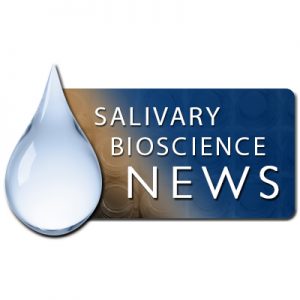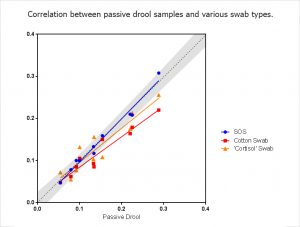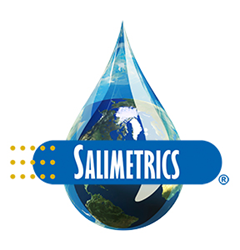*Note: Salimetrics provides this information for research use only (RUO). Information is not provided to promote off-label use of medical devices. Please consult the full-text article.
Social Context of Psychosocial Processes During Adolescent Development and the Psychobiology of the Stress Response.
Peer Networks, Psychobiology of Stress Response, and Adolescent Development Author: Kornienko, O, et al (2018), PLoS BACKGROUND: A consistent focus of research has been on understanding how social relationships shape the activity of the biological stress response system. Progress has been made in characterizing these dynamics at the level of the individual, but significantly less […]
Anticipation of fMRI leads to acute elevations in cortisol prior to scanning
Anticipatory stress associated with functional magnetic resonance imaging: Implications for psychosocial stress research. Author: Gossett EW, et al (2018), International journal of psychophysiology BACKGROUND: Stress tasks performed during functional magnetic resonance imaging (fMRI) elicit a relatively small cortisol response compared to stress tasks completed in a traditional behavioral laboratory, which may be due to apprehension […]
Influence of Adverse Childhood experiences on stress regulation in BPD
Attachment – Related Regulatory Processes Moderate the Impact of Adverse Childhood Experiences on Stress Reaction in Borderline Personality Disorder. Author: Ehrenthal JC, et al (2018), Journal of Personality Disorders BACKGROUND: In this study, the authors explored whether attachment insecurity moderates the effects of adverse childhood experiences on stress reactivity in the context of borderline personality […]
Measuring Salivary Cortisol: Preventing stress-related disorder in early life
Cognitive control moderates parenting stress effects on children’s diurnal cortisol Author: Raffington L, et al (2018), PLoS BACKGROUND: This study investigated associations between parenting stress in parents and self-reported stress in children with children’s diurnal cortisol secretion and whether these associations are moderated by known stress-regulating capacities, namely child cognitive control. Salivary cortisol concentrations were […]
Salimetrics Expands European Access to High-Quality Salivary Bioscience
(April 19, 2018) Salimetrics recently signed distribution agreements with 4 new European distributors, increasing access to salivary bioscience products and services for researchers who desire better results. Collaboration with researchers continues to drive the next phase of better salivary bioscience research throughout Europe. In support of this focus, Salimetrics is happy to announce that it [...]Salivary cortisol provides additional diagnostic value during ACTH1-24 stimulation test
Characterization of the serum and salivary cortisol response to the intravenous 250 µg ACTH1-24 stimulation test Author: Nolan BJ, et al (2018), Endocrine PURPOSE: The ACTH1-24 stimulation test is commonly used to assess the hypothalamic-pituitary-adrenal (HPA) axis. Given variations in CBG concentration and binding affinity, serum total cortisol may misclassify some patients. Salivary cortisol correlates well […]
Salivary alpha-amylase response to pain in children with cancer
Emotion regulation and positive affect in the context of salivary alpha-amylase response to pain in children with cancer Author: Jenkins BN, et al (2017), Pediatric Blood & Cancer BACKGROUND: Children with cancer routinely undergo painful medical procedures invoking strong physiological stress responses. Resilience to this pain may be conferred through resources such as emotion regulation […]
Salimetrics New Website Offers New Study Plan / Quote Builder
(March 23, 2016) Salimetrics, the world’s leading salivary bioscience resource provider, launches new website to better support the growing salivary bioscience community. Earlier today, Salimetrics launched a new, redesigned website, rebuilt to align the support researchers need with the steps researchers go through when performing salivary bioscience research. “As we continue to grow with the [...]Salimetrics’ New, Smaller Packaging – Better for the Environment and Reduces Customer Costs
(March 8, 2018) A simple, single box can deliver more value to customers. Salimetrics' mission is to produce relevant, high quality assays designed specifically for Salivary Bioscience. Researchers and Diagnostic labs know they can depend on Salimetrics assays to be the best choice. But sometimes, something as simple as a box can have value to [...]Registration Now Open – ISPNE Conference Irvine 2018
Dear ISPNE members and fellow colleagues, We are thrilled to announce that the website and registration for 48th ISPNE Annual Conference, “Diversity, Health, and Resilience: Taking Science Beyond Discoveries,” is now live! http://www.ispne.net/annual-conference/ The conference will be hosted by the University of California, Irvine, located in beautiful Southern California! The meeting is a wonderful time […]
Maternal salivary testosterone in pregnancy and fetal neuromaturation.
Maternal salivary testosterone in pregnancy and fetal neuromaturation Author: Voegtline KM, et al (2017), Developmental Psychobiology Testosterone exposure during pregnancy has been hypothesized as a mechanism for sex differences in brain and behavioral development observed in the postnatal period. The current study documents the natural history of maternal salivary testosterone from 18 weeks gestation of […]
Salivary bioscience supports pre-clinical evaluation of new medical device
Preclinical evaluation of the effect of the combined use of the Ethicon Securestrap® Open Absorbable Strap Fixation Device and Ethicon Physiomesh™ Open Flexible Composite Mesh Device on surgeon stress during ventral hernia repair. Author: Sutton N, et al. (2017), Dove Press Aim: To evaluate whether performing ventral hernia repairs using the Ethicon Physiomesh™ Open Flexible […]
Measuring salivary melatonin in children and adolescents
In-home salivary melatonin collection: Methodology for children and adolescents Author: Mandrell BN, et al (2017), Developmental Psychobiology In-home salivary collection quality and adherence to a prescribed collection methodology for evaluation of dim light melatonin onset (DLMO) is unknown in children. Primary aims of this study were to 1) describe a novel family centered methodology for […]
Salivary cortisol, prematurity and developmental implications
Prematurity and perinatal adversity effects hypothalamic – pituitary – adrenal axis reactivity to social evaluative threat in adulthood. Author: Sullivan MC, et al. (2017), Developmental Psychology This study examined the long- term effects of prematurity and perinatal adversity on individual differences in stress- related reactivity and regulation of the HPA axis. A prospective sample of […]
Measuring salivary cortisol levels in domestic canines
A systematic review and meta-analysis of salivary cortisol measurement in domestic canines Author: Cobb M, et al (2016), Domestic animal endocrinology Highlights Systematic review and meta- analysis determined reference range for salivary cortisol in dogs There is a large amount of intraindividual and interindividual variability Salivary cortisol concentrations might relate to subject, environment, or experimental […]
 Contact: Salimetrics (USA)
Contact: Salimetrics (USA)



